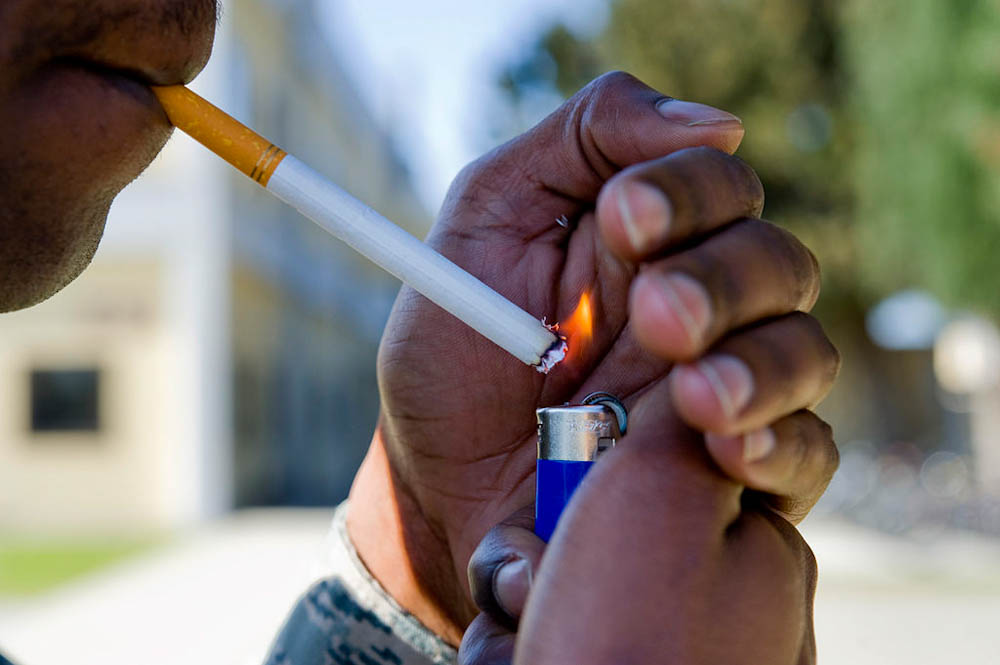
Each year, more than 48,000 people in the United States are diagnosed with oral or oropharyngeal cancer, which occurs in the oral cavity – lips and cheeks, gums, tongue, floor or roof of the mouth – and the oropharynx, referring to the back of the mouth, the tonsils, and the base of the tongue. While not all cancers are preventable, there are several things you can do to lower your risk of developing oral cavity or oropharyngeal cancers.
Stay Away from Tobacco
Smoking or chewing tobacco increases your risk of oral cancer to up to 13 times that of non-smokers, says Guilherme Rabinowits, MD, a medical oncologist in Dana-Farber’s Head and Neck Oncology Program. “It’s also a risk factor for many other cancers – lung, bladder, esophageal, pancreatic – in addition to things like heart disease, emphysema, and many vascular problems,” he notes.
When a smoker quits cigarettes, it can take up to 20 years of not smoking for his or her cancer risk to return to that of the non-smokers. Nevertheless, risk decreases every time a smoker chooses not to light up.
Learn more:
For those already diagnosed with oral cancers, quitting smoking or chewing tobacco has many benefits, including increasing the likelihood of their cancer being cured, lowering the risk of treatment side effects, and decreasing the chances of developing a secondary cancer. While many cancer patients and others are increasingly looking to e-cigarettes as a method of quitting smoking, Rabinowits urges against this, as e-cigarettes are not FDA approved or regulated, and data about their effect on health are controversial.
Speaking with your care team or a therapist, using nicotine-replacement therapy, following recommendations from the Centers for Disease Control, and considering a cessation program are all reliable methods to help you kick the habit.
Limit Alcohol Consumption
Drinking alcohol increases the risk of developing oral and other cancers, including esophageal and liver, which is compounded when using alcohol and tobacco together. If you drink, the American Cancer Society recommends limiting your consumption to no more than two drinks per day for men and one for women, and avoiding behaviors like binge drinking.
Get Vaccinated Against HPV
Certain strains of the human papillomavirus (HPV) can also lead to oropharyngeal cancers, and many HPV-related cancers occur in people with no history of tobacco use. HPV is also a risk factor for cervical, anal, and penile cancer. While the HPV vaccine has been proven to decrease the risk of cervical cancer, it’s also highly likely to reduce the risk of oropharyngeal cancers and others – an ongoing area of research. Girls and young women ages 11-26 and boys and young men ages 11-21 should get vaccinated against HPV.
Older people and men are also at a slightly higher risk of developing oral cancers, which are often diagnosed following routine examinations by a dentist or doctor. Be sure to maintain regular dentist appointments, and speak with your doctor if you notice anything new or different about your mouth, head, or neck.
